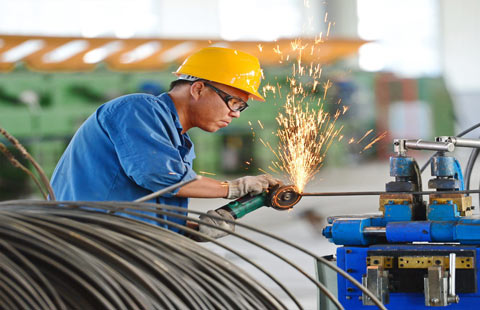Leading Sinopec executive calls for tighter new refinery approvals
A leading petrochemical industry executive has called for the tightening of large scale refinery project approvals in China-in addition to a slowdown in the issuing of fuel-oil import licenses to private companies-in an attempt to alleviate the country's refining overcapacity.
Sinopec Tianjin Petrochemicals General Manager Li Yonglin said China should slow down its refining capacity in accordance with the market demand, in a bid to avoid waste and a passive position due to unplanned expansion and development.
"China should further strengthen its supervision of private refiners that are granted import licenses-and suspend all refining projects without government approval," said Li, who is attending the ongoing annual session of the National People's Congress in Beijing.
Li also suggested companies import crude in accordance with the fluctuations in domestic demand to avoid waste.
The Ministry of Commerce said 32 private companies had been given fuel-oil import licenses for the first time since 2015, marking a significant step toward breaking the monopoly of State-owned oil companies such as China National Petroleum Corp and China Petroleum and Chemical Corp, to import crude directly.
Li said China's teapot refiners-independently run firms with relatively small capacities, ranging from 20,000 barrels per day to 100,000 barrels per day-h(huán)ave used more than 70 million metric tons of imported crude oil so far.
With increasing refining capacity from State-owned as well as private companies and alternative energy sources, including new energy vehicles, the competition in China was only to get worse, he said.
Oil refining has joined steel and coal in suffering from overcapacity in China, with its capacity growth continuously outpacing demand growth in the country.
The gross margins of the global refining sector in 2017 is expected to be far below that of 2016, and Asian countries will see a worsening situation as the region is seeing a large number of projects, according to the CNPC Research Institute of Economics and Technology.
China's two biggest refiners, CNPC and Sinopec, which account for three quarters of the country's refining capacity, have cut output since 2016.
Li said the government should further carry out supervision on taxation, security, environmental protection and oil standards, to better regulate the private refiners.
With the country's refining sector entering into a crucial phase of upgrading, China should resort to optimizing its structure and technology innovation instead of extensive development of expanding capacity and investment, one analyst said.
Li Li, director of energy research at Independent Chemical Information Service China, said the refining sector could see further structural optimization to boost its competitiveness.
"Enthusiasm in building new refining projects are not in accordance with demand and some unplanned investment in local regions only end up with a glut and cut throat competition," she said.
"State-owned enterprises and local refiners should be treated as equal in the market whether in taxation, security standards or environmental requirements."























